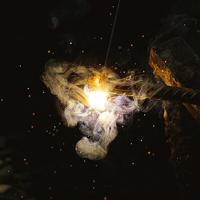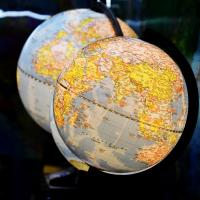
|
ACMRS Annual Conference 2020: UnfreedomUnfreedom marked the lives of various people in the premodern world. Many factors played a role in shaping the forms of unfreedom prevalent in the premodern era: violence and coercion; shame and dishonor; disconnection of kin groups and destruction of social networks; and individual and collective strategies for economic, political, and social success that depended on the subjection of others. The 2020 ACMRS Conference focused on those whose status was defined primarily in terms of unfreedom, coercion, and constraint rather than the enjoyment of freedoms or privileges, including but not limited to slaves, serfs, captives, prisoners, pledges, hostages, and forced marriage or concubinage. Keynote speakers: Jennifer L. Morgan and Omar H. Ali Program_FinalDraft1_2020.pdf |

|
Magic, Religion, and Science in the Global Middle Ages and RenaissanceThe ACMRS and MAP Joint Conference: Magic, Religion, and Science in the Global Middle Ages and Renaissance (2019) is an annual gathering of scholars, students, retirees and members of the general public interested in medieval and Renaissance studies. ACMRS is proud to announce that its 2019 conference will be held jointly with the Medieval Association of the Pacific. We welcomed papers that explored any topic related to the study and teaching of the Middle Ages and Renaissance and those that focueds on the general theme of “Magic, Religion, and Science in the Global Middle Ages and Renaissance.” The conference lasted four days, from Wednesday, February 6, with sessions beginning at 1 p.m., until Saturday, February 9 at 9 p.m. Program_FinalDraft_2019.pdf |

|
Reading the Natural World: Perceptions of the Environment and Ecology in the Global Middle Ages and RenaissanceThe 24th Annual ACMRS Conference is an annual gathering of scholars, students, retirees and members of the general public interested in medieval and renaissance studies. The conference featured selected papers focused on the theme “Reading the Natural World: Perceptions of the Environment and Ecology in the Global Middle Ages and Renaissance”, roundtables, panel discussions and a performance from Les Enfan Sans Abri. Program_Final_2018.pdf |

|
Paradigm Shifts During the Global Middle Ages and RenaissanceACMRS welcomed papers that explored any topic related to the study and teaching of the Middle Ages and Renaissance and especially those that focused on the general theme of “Paradigm Shifts during the Global Middle Ages and Renaissance.” Keynote Speaker: Ronnie Po-Chia Hsia, Edwin Erle Sparks Professor of History, Pennsylvania State University. Professor Hsia's research has focused on the history of the Protestant Reformation, Catholic Renewal, anti-Semitism, and the encounter between Europe and Asia. His current book project, tentatively titled Translating Christianity: China and the Catholic Missions 1584-1780, is a study of the history of cultural encounter between Counter-Reformation Europe and the Ming and Qing empires. ACMRS_Conference_Program_2017.pdf |
Marginal Figures in the Global Middle Ages and RenaissanceACMRS welcomed papers that explore any topic related to the study and teaching of the Middle Ages and Renaissance and especially those that focus on the general theme of “Marginal Figures in the Global Middle Ages and Renaissance.” Keynote Speaker: Frederick de Armas, Andrew Mellon Distinguished Service Professor in the Humanities, University of Chicago. Frederick A. de Armas focuses on the literature of the Spanish Golden Age (Cervantes, Calderón, Claramonte, Lope de Vega), often from a comparative perspective. His interests include the politics of astrology; magic and the Hermetic tradition; ekphrasis; the relations between the verbal and the visual particularly between Spanish literature and Italian art; and the interconnections between myth and empire during the rule of the Habsburgs. ACMRS_Conference_Program_2016.pdf |

Annual ACMRS Conference
Past conferences